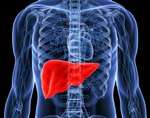Potassium, an often-overlooked electrolyte, is vital for maintaining proper bodily functions, from fluid balance to blood pressure regulation. While many diets are high in sodium, potassium intake frequently falls short, disrupting the delicate balance necessary for optimal health. Ensuring adequate potassium levels isn’t just about preventing deficiencies; it’s about mitigating the negative effects of excessive sodium and supporting overall well-being.
Why Potassium Matters: Beyond Fluid Balance
Potassium works in tandem with sodium to regulate fluid levels and blood volume. However, its benefits extend far beyond this basic function. Maintaining sufficient potassium intake is linked to a decreased risk of several serious health conditions.
Potassium and Cardiovascular Health
A clear connection exists between low potassium intake and hypertension (high blood pressure). Consuming enough potassium can help prevent or manage high blood pressure, reducing the risk of associated complications such as:
- Heart attack
- Stroke
- Kidney disease
Beyond the Heart: Other Potential Benefits
Research suggests that higher potassium intake may also reduce the risk of:
- Kidney stones
- Osteoporosis
- Type 2 diabetes
These findings underscore the importance of potassium as a preventative measure for chronic diseases.
The Sodium-Potassium Ratio: A Critical Balance
In many Western diets, sodium intake far exceeds potassium intake. This imbalance can contribute to hypertension and increase the risk of cardiovascular problems. Targeting both mineral levels—reducing sodium and increasing potassium—offers the most effective approach to improving health.
When Potassium Needs Increase
Certain situations require increased potassium intake. Rapid fluid loss through vomiting, diarrhea, or intense sweating (such as during exercise) depletes electrolytes, including potassium. Replenishing both sodium and potassium is crucial, particularly for:
- Children
- Older adults
- Individuals with weakened immune systems
- Those experiencing severe dehydration
Healthcare providers may recommend supplements or electrolyte drinks to restore balance.
Dietary Sources of Potassium
Increasing potassium intake is achievable through dietary changes. Excellent sources include:
- Potatoes
- Bananas
- Leafy greens
- Avocados
- Carrot juice
- Orange juice
- Dried apricots, raisins, and prunes
- Lentils and beans
- Milk
- Spinach
While potassium supplements exist, they often contain low doses (99mg or less). A single banana provides more potassium than most over-the-counter supplements.
Can You Overdo It? The Risks of Hyperkalemia
While potassium is essential, excessive intake can lead to hyperkalemia (high blood potassium). This condition can cause shortness of breath and potentially life-threatening heart rhythm disturbances. Individuals with advanced kidney disease must exercise caution with both potassium supplements and high-potassium foods.
In conclusion, potassium is a critical electrolyte often underestimated in modern diets. Prioritizing potassium-rich foods and maintaining a healthy sodium-potassium balance are essential for preventing chronic diseases and maintaining optimal health

































